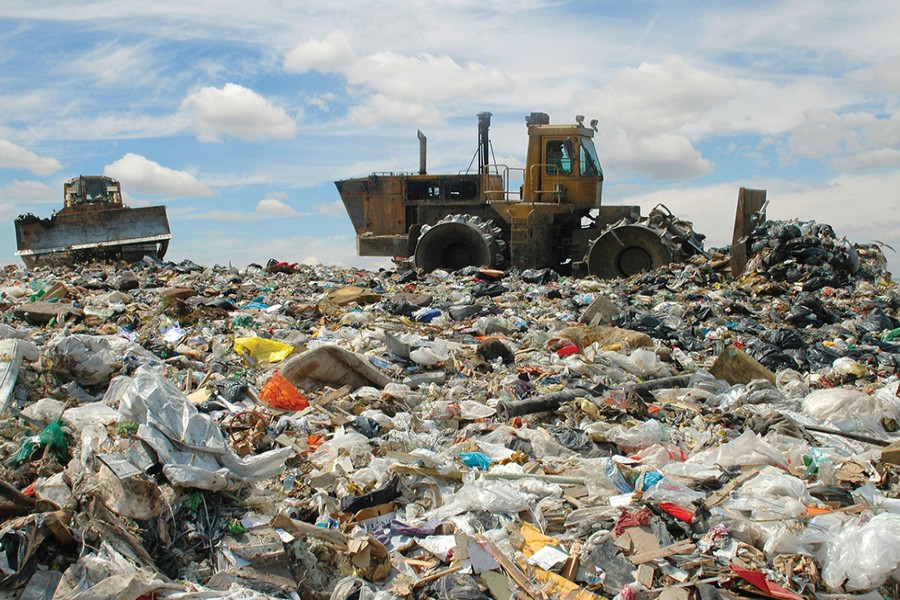Improper waste management has become a severe health and environmental hazard certainly for the informal workers in the sector against the growing population and consumption, said a new report on Tuesday.
Through people-centred analysis, the report reveals huge inequalities in access to services across four case study cities – Satkhira, Odisha, Kisumu and Dakar. And a total of 402 households were surveyed in the study.
Satkhira city population is about 170,000 with around 17,000 in 47 slum communities, and the city generates 56 tonnes of waste generated daily.
“Only 5 per cent of households are served by municipal collection service and 1 per cent by private collectors. 10 per cent of the households use one of 80 concrete dustbins which are mostly 200m away and not well managed,” the study read.
The study was disclosed at a launching program titled “Managing Our Waste 2021: A view from the Global South'' organised by Practical Action Bangladesh with the support of GreenTech Foundation Bangladesh at a city hotel.
Deputy Minister of the Ministry of Environment, Forest and Climate Change Habibun Nahar attended as a chief guest of the launching programme.
Uttam Kumar Saha, Strategic Lead- Urban & Energy, Practical Action in Bangladesh presented the keynote presentation.
Only 7 per cent have at least a ‘basic’ waste service and 84 per cent have no service at all. There are no collection services in slum areas, and 95 per cent of slums have no service at all.
Everyone in the town has very poor access to waste services at home, the study reveals.
Some 16 tonnes of waste were taken to the dump site each day by Satkhira municipal vehicles. Waste is managed by at least 400 people. 115 employed by the municipality and the rest in small and informal businesses.
All year, piles of waste in drains, ponds and open spaces attract mosquitoes, flies and other insects and there is an ‘unbearable stench’ in the city, according to the study.
Deputy minister in her speech emphasised the necessity and the role of the government in the waste management of Bangladesh.
She said that “The increase in the amount of waste is affecting the lives of so many people, especially low-income people from waste collection to waste disposal.
“Unfortunately, we have been looking into efficient waste management but we must think about the health status of the workers involved in these activities,” she added.
Participants and speakers emphasized community participation and engagement, building knowledge and skill of local stakeholders, and changes in community practices for developing integrated sustainable waste management.
Protection and empowerment of informal and small-scale waste collection, processors and recyclers are also very much needed.
Md. Ziaul Haque, Director of Dept. of Environment, Shafiul Azam Ahmed, waste management sectoral expert, and Khurshid Zabin Hossain Taufique, Director of Urban Development Directorate (UDD) attended as Panelist in the Discussion session.
Shawkat A. Begum, Country Director of Practical Action in Bangladesh, presided over the event.


